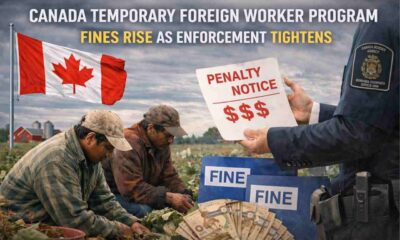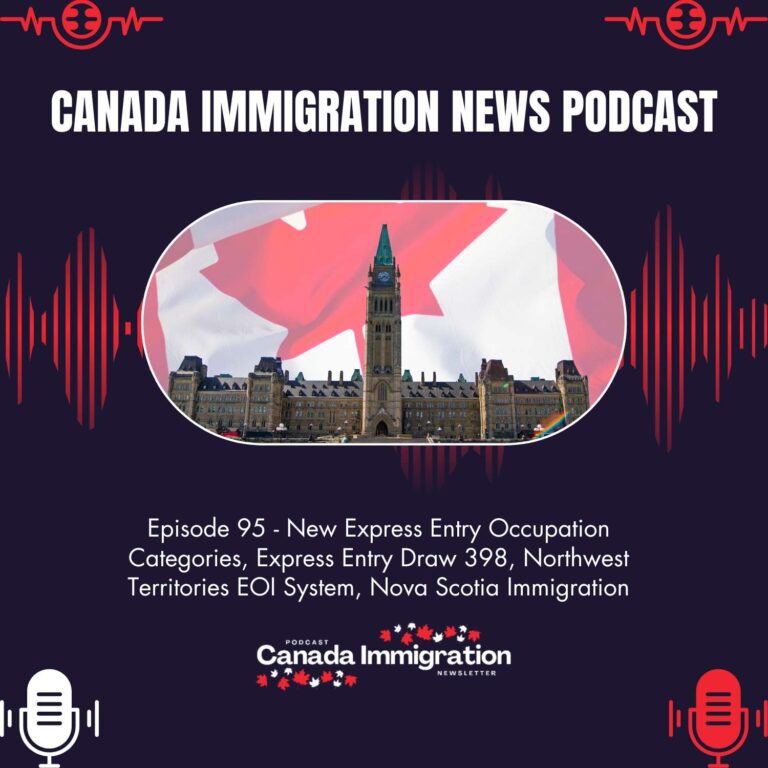Work in Canada
Why Canada Needs Skilled Immigration to Strengthen Its Labour Market

Canada is experiencing one of the most dramatic shifts in its workforce in recent history. A growing share of the country’s labour force is now made up of temporary foreign workers, many of whom are earning less and facing limited job protections. While this trend helps fill urgent labour shortages, it also highlights deeper questions about fairness, wages, and the sustainability of the current immigration system.
What’s happening isn’t just a short-term labour fix. It’s a major shift with long-term effects. That’s why now, more than ever, hiring a licensed immigration consultant (RCIC) is essential to help newcomers plan wisely, apply correctly, and thrive in Canada. Whether you’re coming to study, work, or settle permanently, professional guidance can make all the difference.
Canada’s Growing Dependence on Temporary Foreign Workers
A recent Bank of Canada report reveals a striking trend: since 2006, the share of native-born Canadians in the workforce has dropped by nearly 10 percentage points. In contrast, the number of newcomers, especially those on temporary visas, has grown rapidly.
Here’s what the data tells us:
| Year | Share of Canadian-born Workers | Main Source Regions for Migrants | Average Wage Gap |
| 2006 | 77.6% | Western Europe | 9.5% |
| 2024 | 68.1% | India, Sub-Saharan Africa, Middle East | 22.6% |
Temporary foreign workers are now filling roles that were traditionally occupied by Canadian youth and entry-level workers. Industries like food services, retail, and agriculture have seen a surge in non-permanent labour, some increasing by over 600% since 2016.
But the growing wage gap, now at 22.6%, raises important concerns. Lower wages, fewer protections, and limited pathways to permanent residency make life harder for the very people keeping vital sectors running.
Why This Matters: The Real Impact Behind the Numbers
This shift isn’t just about numbers, it’s about real people trying to build better lives. For many, coming to Canada is the beginning of a dream. But without proper guidance, they face barriers that can turn that dream into a struggle.
Many new workers come from lower-income countries and arrive with limited resources. Without a clear path to permanent residency, they may remain stuck in temporary roles. Worse, some may fall prey to unethical recruiters or employers who exploit the system.
This is where professional immigration help becomes vital. A licensed immigration consultant, known as an RCIC, can help individuals understand their rights, choose the right immigration stream, and avoid costly mistakes.
Hiring an Immigration Consultant is More Important Than Ever
If you’re planning to work in Canada, especially as a temporary foreign worker, hiring a certified immigration consultant is one of the best decisions you can make. Here’s why:
- Accurate Guidance: RCICs are trained and regulated professionals who know the latest immigration policies.
- Better Success Rates: Applications handled by consultants often avoid delays or rejections due to incomplete paperwork or wrong categories.
- Legal Protection: Consultants are accountable to the regulatory body (CICC), offering peace of mind.
- Support Beyond Application: A good consultant helps with settlement services, housing, and understanding your worker rights.
What to Look For in an Immigration Consultant:
- Registered with the College of Immigration and Citizenship Consultants (CICC)
- Transparent about fees and services
- Offers honest advice and realistic timelines
- Has good reviews and a proven track record
Skilled Immigration is the Key to a Stronger Canada
Canada’s future depends on smart, fair, and effective immigration. As our population grows through migration, we must ensure that newcomers are treated fairly and given the tools they need to succeed. Whether you’re a student, a skilled worker, or coming under a temporary visa, the smartest step is to consult an experienced immigration professional. Hiring a certified immigration consultant not only improves your chances but also helps build a better Canada, one where every worker, no matter where they come from, can thrive.























